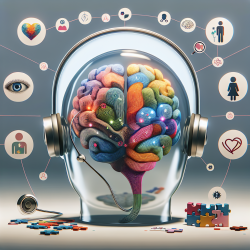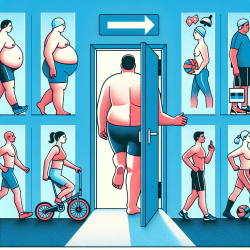The growing body of research around animal-assisted therapy highlights the profound impact that interactions with animals can have on human wellbeing. A recent study titled "Impact of Interactions with a Puppy and Handler Versus a Handler Alone on Stress and Vitality in a University Setting: A Crossover Study" provides valuable insights into how these interactions can be leveraged to enhance mental health and vitality, particularly within educational environments.
The Study: Key Findings
This study explored the effects of brief interactions with puppies on perceived stress and vitality among university students and staff. Participants engaged in two types of sessions: one with a puppy and handler, and another with just the handler. The results were telling: participants reported significantly lower stress levels and increased vitality after interacting with the puppy compared to the handler alone. These findings suggest that even short-term interactions with puppies can have a measurable positive impact on wellbeing.
Implementing Puppy Interaction Programs
For practitioners looking to implement similar programs, here are some steps based on the study's findings:
- Select Appropriate Puppies: Choose puppies that are part of training programs for assistance or therapy work. These puppies are typically selected for their calm temperament and ability to interact positively with humans.
- Ensure Skilled Handlers: Handlers should be knowledgeable about animal behavior and trained to ensure both the welfare of the puppy and the comfort of participants.
- Create a Safe Environment: Set up a controlled environment where participants can interact freely with the puppy while ensuring safety for all involved.
- Monitor Interactions: While allowing conversations to flow naturally, handlers should be prepared to guide interactions if necessary and address any potential issues promptly.
The Benefits of Puppy Interaction Programs
The benefits of incorporating puppies into wellbeing programs extend beyond stress reduction. These interactions can serve as social lubricants, fostering a sense of community and connection among participants. Moreover, they provide an opportunity for puppies to receive valuable socialization experiences, which are crucial for their development as future assistance or therapy dogs.
Challenges and Considerations
While the benefits are clear, practitioners must also consider potential challenges such as managing participant expectations and ensuring consistent program delivery. Additionally, attention must be given to the welfare of the animals involved, ensuring they are not overstressed by frequent interactions.
Encouraging Further Research
This study opens avenues for further research into the specific mechanisms through which puppy interactions reduce stress and enhance vitality. Future studies could explore physiological measures alongside self-reported data to provide a more comprehensive understanding of these effects.
To read the original research paper, please follow this link: Impact of Interactions with a Puppy and Handler Versus a Handler Alone on Stress and Vitality in a University Setting: A Crossover Study.










